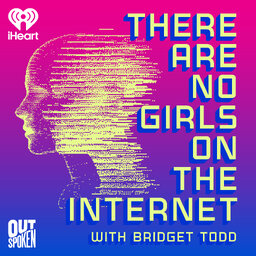How The Matrix Explains a Trans Experience
Vox’s Emily VanDerWerff talks about the 1999 film The Matrix as an allegory for the trans experience.
Donate to House of Tulip: https://www.gofundme.com/f/housing-for-tgnc-people-experiencing-homelessness
Read Emily’s piece on The Matrix: https://www.vox.com/culture/2019/3/30/18286436/the-matrix-wachowskis-trans-experience-redpill
Hello@Tangoti.com
Learn more about your ad-choices at https://www.iheartpodcastnetwork.com
In 1 playlist(s)
There Are No Girls on the Internet
Marginalized voices have always been at the forefront of the internet, yet our stories often go over…Social links
Follow podcast
Recent clips

Amazon Ring Super Bowl Ad BACKFIRES; YouTubers Exploit Women's Arrest Videos; Salesforce CEO ICE "Joke" – NEWS ROUNDUP!
1:10:54

University of Oklahoma Trans Instructor's Attorney Still in the Fight After Appeal Denied
47:18

Should You Trust Andrew Huberman? What CBS's Epstein Disaster Reveals About Wellness Gurus
1:32:51
 There Are No Girls on the Internet
There Are No Girls on the Internet